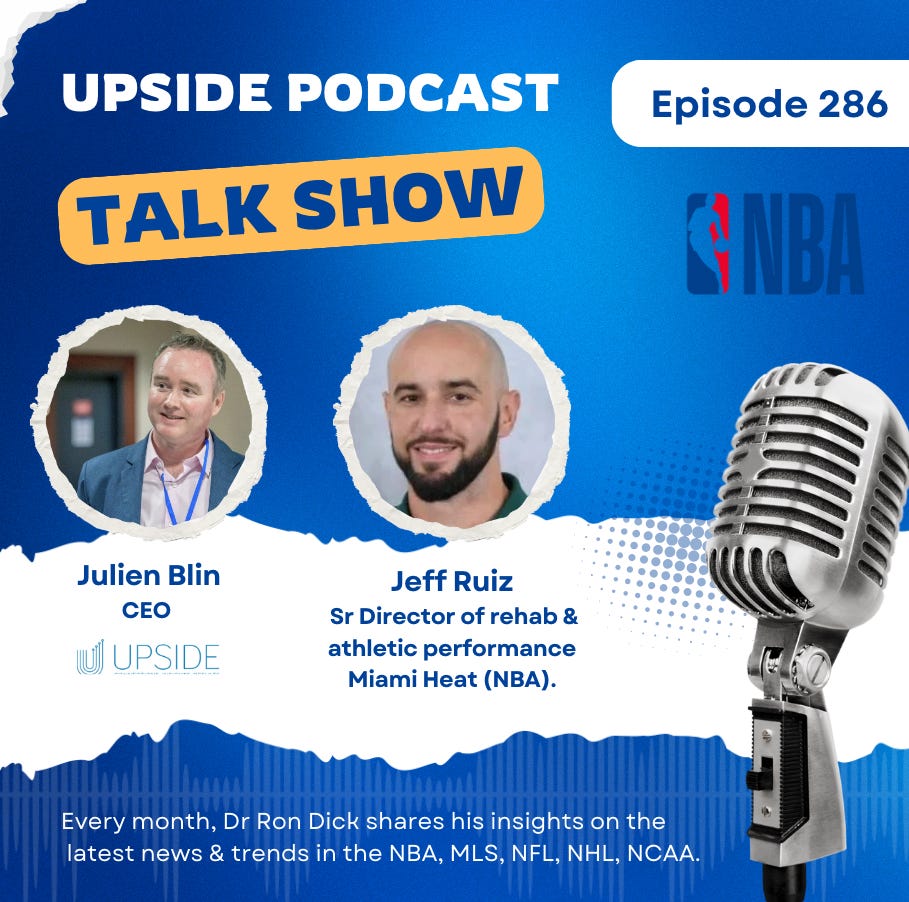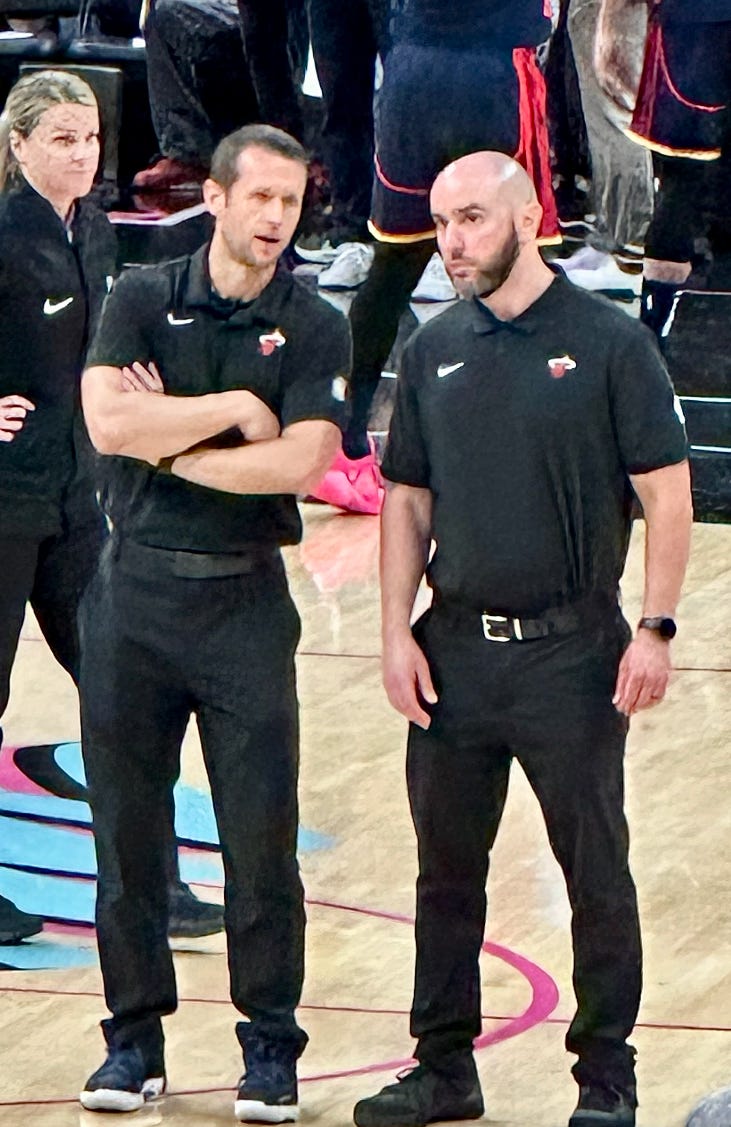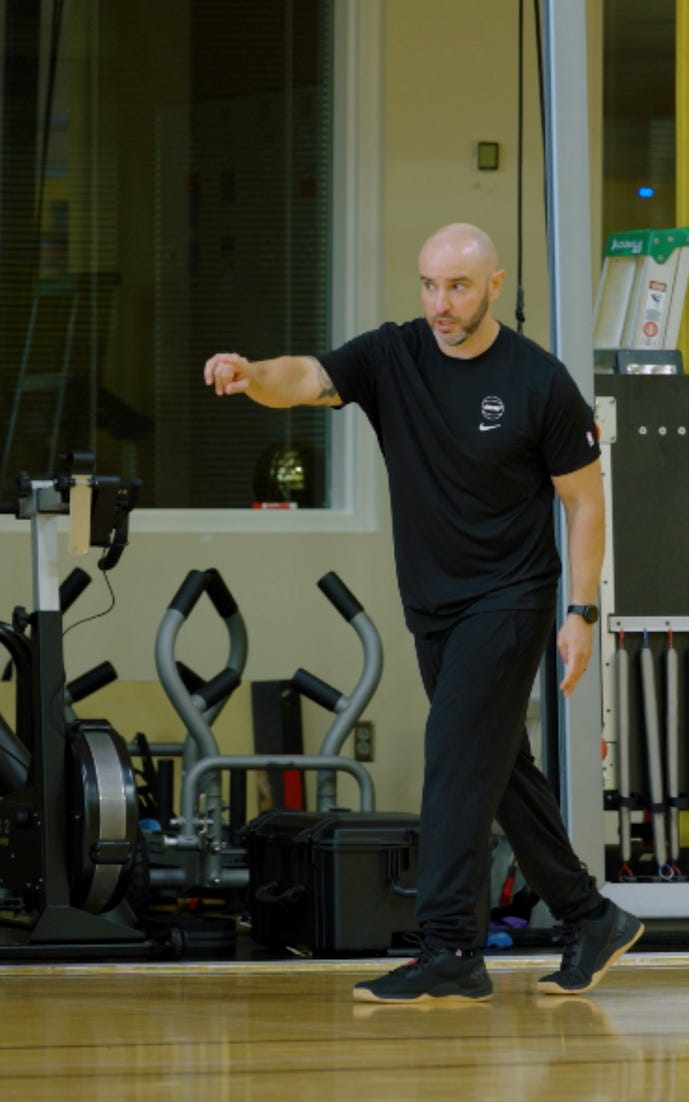Today we have the honor of interviewing Jeff Ruiz, the Sr Director of rehab and athletic performance for the Miami Heat (NBA).
Jeff Ruiz is the Senior Director of Rehab and Athletic Performance for the Miami Heat (NBA), where he leads player rehabilitation, sports science integration, and performance optimization across departments including strength and conditioning, athletic training, and nutrition. Before joining the Heat in 2023, Ruiz built a strong foundation at the University of Miami, where he completed his physical therapy education and rose to become Director of Rehab for the athletic department.
There, he also served as an assistant strength and conditioning coach, working across multiple sports such as football, track and field, diving, and women’s basketball, blending hands-on clinical rehab with performance training. He later spent nearly three years as Director of Rehab for the Washington Commanders (NFL), overseeing injury recovery and return-to-play processes at the professional level. Known for his collaborative, multidisciplinary approach, Ruiz now plays a pivotal role in aligning rehab, sports science, technology, and performance strategies to support player health, reduce injury risk, and enhance on-court performance for the Miami Heat.
You can watch the video interview below by clicking on the Youtube link. You can also listen to the audio interview by clicking on the link at the top of the page:
📝Show Notes: During our interview with Jeff Ruiz, we discussed his role as Senior Director of Rehab and Athletic Performance for the Miami Heat, a position he started in 2023 after serving as Director of Rehab for the Washington Commanders in the NFL. His professional background is rooted in exercise physiology/kinesiology and psychology, leading him through physical therapy and strength coaching roles. Jeff emphasizes that his overall approach is centered on collaboration across strength, rehab, analytics, and dietetics to facilitate comprehensive care. He strives to work “as hard as possible but as smart as possible.
Key technologies he prefers are those that allow for direct, specific, and live monitoring, such as IMU/LPS/GPS tracking systems and force plates, which he calls essential for an NBA team. Looking forward, Jeff anticipates a massive shift toward AI and machine learning to personalize rehab and flag performance decrements, though he cautions that this technology must enhance the practitioner, not replace them. Ultimately, his ideal future technology would be a seamless, comprehensive AI model that acts as a supervisory “net” to improve workflow, communication, and management across all departments
You can read the full transcript of the podcast interview with Ryan located at the top of this blog post.
Here are the quotes from the interview with Jeff:
1. Tell me about your background
“My background is kind mixed. I started with an undergrad degree in exercise physiology or kinesiology, and I double majored in psychology. I wasn’t sure if I was going to go down the route of sports physical therapy, strength and conditioning, or neuropsychology, but I knew that for the most part, I wanted to work in the sports realm.”
“I worked at the University of Miami for years — internships, then full-time as a physical therapist, assistant strength coach for track and field, diving, football, and women’s basketball. Eventually I became Director of Rehab there. Then in 2021, I got called by the Washington Commanders and spent about three years in the NFL before joining the Miami Heat.”
2. What is your role at the Miami Heat?
“As Senior Director of Rehab and Athletic Performance, I work across several departments. My primary role is making sure that anyone who’s injured gets coordinated care across all groups — rehab, athletic training, performance, and medical. But I also work on the strength and conditioning staff doing most of the sports science — load monitoring, tracking — and I work with high-risk players. It’s a dream job because I get to collaborate with amazing people across so many areas.”
3. What is your approach to training, S&C, rehab, and innovation?
“My main approach is collaboration. I lean on such a good village — strength and conditioning, rehab, athletic trainers, dietitians, analytics. We try to create comprehensive care by communicating constantly across departments. My methodology is working as hard as possible but also as smart as possible… making sure we’re looking at things biomechanically, physiologically, and through load metrics, and then knowing when to push and when to pull back. Communication across the board is my favorite piece of what we do.”
4. What are your preferred technologies and why?
“If you asked me what one piece of technology I’d take with me, I’d probably say a barbell. But honestly, when it comes to performance tracking, I love IMUs, GPS or LPS systems. Those systems that allow you to monitor in real time give you a different lens — you can see if KPIs are being hit, if performance is dropping, or if someone is at risk. Force plates are essential in the NBA — every team should have them — but live tracking becomes the glue between departments: strength coaches, trainers, nutrition, performance staff. Everyone can look at the same data and understand what just happened.”
5. How do you see the future of rehab evolving?
“We’re in a really interesting era. In 10 years, I think we’ll see a massive shift into technology and AI. The ability to personalize and build out machine learning models will be huge for rehab — it can help make sure critical details don’t get missed during long rehab processes. It could constantly remind practitioners of things that need adjustment based on large datasets. But I don’t think AI will provide the care — it will support it. People who don’t use AI will fall behind, and people who rely too heavily on it will also fail. It’s about balance.”
6. If you had unlimited resources to build technology, what would you create?
“I’d build a very comprehensive machine learning and AI system that helps tie everyone and everything together — rehab, performance, nutrition, medical, analytics. Almost like a multi-headed platform that manages communication, flags when something is missing, reminds staff of critical steps, detects small drops in performance, and integrates all departments seamlessly. Right now, everyone has their own AMS or custom system, but they don’t fully talk to each other. I’d build something that acts like a net over everything — making workflows easier, freeing up time so practitioners can focus on actual care.”
You may also like:













